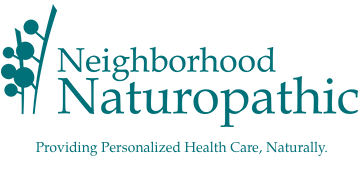Navigating Your Hormonal Landscape
Something we don’t talk about enough is the way our bodies change as we get older – specifically related to hormones and their balance. Although the symptoms can be different, knowing that both men and women experience this change can be helpful in taking care of yourself and also in supporting each other.
Here are a few functional changes that men and women might experience as their hormonal landscape evolves with age:
Hormonal Changes in Men:
- Sex Drive: Many men may notice fluctuations in their sex drive as they age. It’s important to understand that this is a common occurrence due to hormonal shifts.
- Sleep Habits: Hormonal changes can also impact sleep patterns in men, leading to difficulties falling asleep or staying asleep.
- “Dad Bod on Steroids”: Some men may experience changes in body composition, such as increased fat accumulation, particularly around the abdomen.
- Muscle Mass: Aging can bring challenges in maintaining or building muscle mass, making it harder to see gains in the gym.
Hormonal Changes in Women:
- Weight Gain: Women may struggle with weight management as hormonal changes can affect metabolism and fat distribution, leading to stubborn weight loss issues.
- Sex Drive: Hormonal fluctuations can also impact women’s sex drive, resulting in changes in libido and sexual desire.
- Sleep Habits and Irritability: Hormonal shifts can disrupt sleep patterns, leading to difficulties falling asleep or staying asleep. It may also contribute to mood changes, irritability, and heightened stress levels.
- Irregular Cycles and Heavy Bleeding: Menstrual irregularities can occur due to hormonal changes as women age.
While hormonal changes are a natural part of aging for both men and women, recognizing when these changes start interfering with daily life. To address your body’s specific needs, seeking help from one of the doctors at Neighborhood Naturopathic can be beneficial.
One approach we use to determine and decipher hormonal imbalance is the Dutch Test, which measures hormone levels and provides valuable insights that help us determine what treatment protocol to use. It’s important to note that while anyone can take the Dutch Test, interpreting the results requires expertise from a healthcare professional.
Based on diagnostic results, hormonal adjustments can be made to restore balance and alleviate symptoms. This may involve changes in nutrition to accommodate shifting needs, modifications in exercise routines to support optimal hormone function, and adopting stress management techniques to mitigate the impact of hormonal changes on well-being.
At Neighborhood Naturopathic we can interpret diagnostic results, make necessary adjustments, and provide guidance on nutrition, exercise, and stress management can make a significant difference in navigating hormonal changes and improving overall wellness. Remember, you are not alone in this journey, we are here for you! Seeking help is a proactive step towards regaining balance and vitality.
If you live in the Minneapolis/ St. Paul area and are curious about a naturopathic approach to your health or have questions about supplements, or IV Nutrient Therapy that might support your overall wellness, click here to schedule or call (612) 259-8529.
If you are interested in learning more ways that naturopathic medicine supports health and wellness in your life, sign up for our monthly newsletter where we give insider tips and tricks about living well.

